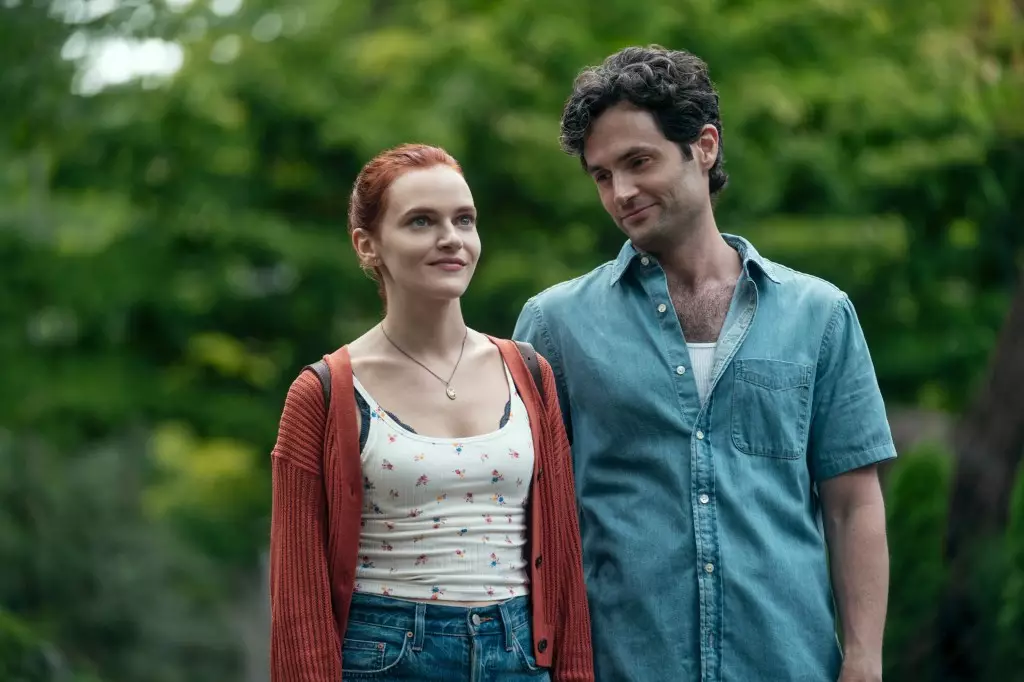The Netflix thriller series “You” wraps up its compelling yet macabre narrative in a manner that resonates powerfully with its audience. Joe Goldberg, played masterfully by Penn Badgley, traversed a landscape of manipulation and murder, leaving a trail of devastation that spanned seasons. As the series reaches its zenith, the showrunners Michael Foley and Justin Lo confront an intricate question: how does one deliver justice to the ultimate villain? The culmination of the storyline doesn’t simply serve as a climax; it offers a profound commentary on the nature of accountability, a reflection that reverberates far beyond the screen.
Despite early ideas of utilizing a supernatural twist where Joe discovers he’s a ghost post-mortem, the writers ultimately grounded him in the harsh reality of the criminal justice system. In this version of the narrative, shooting appears as a pivotal point, yet Joe’s fate diverges significantly from the one-dimensional closure that death would imply. Instead, locked behind prison bars stripped of autonomy, the character receives a punishment that metaphorically encapsulates his own traps—never again to engage in the manipulative seductions that defined him. Through this lens, the choice to keep Joe alive but imprisoned serves not just the narrative, but elevates the thematic undercurrents of the show.
The Conundrum of Justice vs. Redemption
In conversations surrounding the finale, a potent reflection arises: what does true justice entail for someone like Joe? Good storytelling hinges on its ability to provoke thought. Badgley highlights a significant aspect—the dilemma of agency. Should it fall upon another to inflict punishment, particularly someone who has already been victimized? This moral quagmire is artfully sidestepped in the finale; the portrayal of Joe in a cage signifies not just physical imprisonment but also a psychological reckoning with his actions. This choice amplifies a critical sentiment—redemption for Joe would be too easy, an exit strategy that robs the narrative of its potency.
Additionally, the showrunners considered how justice reflects societal dynamics. Joe’s lingering view of himself as victim starkly contrasts with his actual role as the perpetrator. Faced with the mundane reality of his situation, his self-perception is undercut, forcing him to confront the echoes of the lives he has ruined. This twist in the narrative ingeniously flips the typical protagonist-antagonist dynamics often found in media, leading viewers to ponder who the real victims are.
Creative Risks and Audience Engagement
The decision to forgo a conventional resolution also speaks volumes about the risks the creators were willing to take. Introducing an unconventional conclusion—not resulting in Joe’s death—invites the audience to consider their responses. It’s an invitation to grapple with complex feelings towards Joe, who, throughout the series, oscillates between charisma and pure malevolence. By resisting the allure of delivering a neat resolution, the showrunners craft an experience that remains thought-provoking long after the credits roll.
It’s intriguing to observe how the narrative remains engaging when the conclusion adheres to a form of realistic justice. The audience’s reluctance to let go of Joe, even in his despair, reflects a deeper societal fascination with flawed individuals. The writers, being acutely aware of this, skillfully weave in a commentary on the collective responsibility society bears for shaping such characters, effectively creating a dialogue that transcends the series itself.
The Morality of Suffering
As the series wraps up, an unsettling yet necessary conversation arises: what we normalize in our storytelling tells us a lot about our societal values. Joe’s imprisonment is a powerful metaphor for the repercussions of toxic masculinity and entitlement. The show’s creators consciously steer away from victimizing him further—by sharing the burden of someone else’s crime—by illuminating that suffering for the perpetrator doesn’t equate to his redemption or absolution. Instead, it becomes a shared human experience that challenges viewers to reflect on their perceptions of justice, morality, and empathy.
In this way, “You” doesn’t just conclude, but instead extends an invitation for reflection, urging its audience to reevaluate their concepts of agency and consequence. The final moments of the series feel less like an ending and more like a compelling prompt, compelling us to consider the complexities of our darker impulses and humanity’s capacity for understanding. The ultimate legacy of “You” lies not in simply telling a tale of a killer, but in exploring the kaleidoscope of human motivations and the repercussions they bear.

